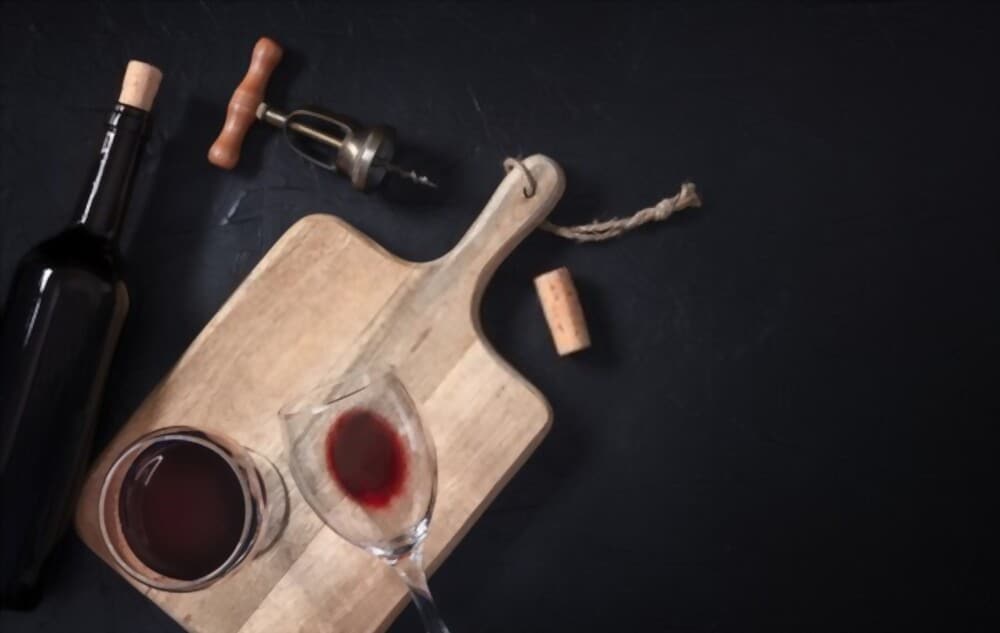The answer is yes if you’ve ever questioned whether you can use wine on the houseplants you have.
Wine is a tried-and-true, all-natural way to treat many common plant diseases on plants. Since the 17th century, wine’s tannins have been utilized to treat plants. Beneficial bacteria are induced when red wine is added to compost, which promotes the growth of your plants.
While adding wine, compost’s moisture must be carefully managed. For this, adding dry substances like cardboard might be beneficial.
This page contains all the information you need to know about the fascinating impact wine has on plants.
Table of Contents
Is Wine Good For Plants?
Wine is typically a fermented grape-based alcoholic beverage. The sugar in the grapes is consumed by yeast, who then transforms it into ethanol and carbon dioxide.
Depending on how much sugar was present when the fermentation process started, wine’s alcohol concentration varies. ABV for most wines is approximately 12%. (alcohol by volume).
This indicates that 1.2 liters or so of pure alcohol are contained in each bottle.
From 5% concentration and up, alcohol slows plant growth. The effect is more noticeable in less time the more intense the concentration.
Wine can have some advantageous effects on plants if it is moderate and contains significantly less alcohol than 5%.
Wine contains sugar, which promotes the growth of some good bacteria in the soil.
Red wine contains nitrogen, which encourages the growth of beneficial bacteria in the compost bin and helps your garden.
Second, water is healthy for plants and wine is largely water (around 90% in the case of red wine).
Additionally, wine promotes the growth of your plants by shielding them from harm from insects and other pests.
Can Plants get Drunk?
If we pour wine into plants, would they become inebriated? Sounds a little odd! The answer is NO, of course.
The neural systems of humans and other animals are not present in plants. Ethanol is taken into the circulation in humans, just like it is in animals, and then travels to the brain where it interferes with immune system communication.
Animals can be somewhat poisoned by methanol. Wine contains methanol, which plants prefer and consume like carbon dioxide because it speeds up metabolism.
On roots, methanol with a 10% concentration is toxic, while leaves with a 30% concentration become hazardous.
Because plants are brainless and lack a neurological system, they are unable to consume alcohol.
Using Wine as a Fertilizer:
Although it is not advised, adding a full bottle to the plant could cause bacterial harm.
Any wine that is left over should be stored until it spoils. Vinegar is created when you let the wine go bad.
Add the wine to your compost pile once it has soured or turned.
Through the process of releasing nitrogen from the wine, bacteria are triggered to grow and break down your compost fertilizer.
After that, give your plants access to the fertilizer to aid in their healthy growth.
If you don’t already have a compost basis, you should try the recipe for compost below. The amount will depend on how many plants you have.
- espresso grinds
- 4 ml of red wine
- Eggshells that have been properly cleansed, baked, and mixed
- Peelings from well cleaned, baked, and blended carrots
- Peelings from roasted, properly washed, and blended potatoes
The components of this compost recipe should be thoroughly combined before being added to the soil as needed. Blend it after that to wet your plants.
If you don’t have any red wine left over (although it would be great if you did), you can combine other leftover wines and set them away until you have enough of the blended beverage set aside.
Using Wine as Herbicide:
Utilizing wine as a herbicide is just another great thing you may do.
If you want to utilize wine as a herbicide, make sure the alcohol concentration is much higher than 5%.
Plants may be poisoned by alcohol. Their capacity to absorb nutrients from the soil and water is impacted. Additionally, it prevents the growth of roots, which is how it can be used to control undesirable growth in both gardens and potted plants.
A wine that has gone sour can nevertheless benefit the plants and serve as a weed killer. One thing you can do with bad wine is this.
And once transformed into vinegar, it works well as a herbicide. It is one of the safest and most efficient ways to control weeds, to put it briefly.
Wine as a Pesticide and insect trap:
Wine’s ability to effectively repel pests including aphids, mealybugs, spider mites, and whiteflies is one of its key benefits.
Use the leftover wine to soak a cotton ball, then dab it on mealybugs and aphids to get rid of them. Repeat this procedure every week until the pest is gone.
Please remember that undiluted alcohol can burn the plants.
Create a spray solution with a 1:10 dilution in water to avoid this issue.
To make sure the leaf won’t burn, perform a patch test on it first. After 4 to 5 hours, remove the plant and rinse it with water.
Fruit flies and other insects can be effectively trapped with the help of wine. However, insects don’t enjoy the fragrance of wine because it makes their legs cling together.
Is Wine Good for Compost?
Perhaps you have experienced instances when the flavor of your wine does not feel good, in which case you may believe that composting wine is a better option.
There are several theories out there on how alcohol affects composting. One of them, which substitutes wine that is contained in the compost as a liquid for the necessary water, is quite satisfactory.
Maintaining moisture in a functioning compost heap is crucial to the smooth operation of the process since inadequate moisture will cause some crucial microorganisms to perish.
However, others argue that the yeast included in wine accelerates the degradation of organic things, especially wooden items.
Additionally, the wine’s nitrogen content contributes to the breakdown of carbon-related compounds. On the cork of a wine bottle, composting is another option.
The important thing to note in this situation is to avoid pouring too much wine into a little compost heap.
This could destroy the necessary balance, and the excessive wine consumption could also kill some bacteria.
It’s okay to simply add a small amount of leftover wine to the compost pile, but don’t do it frequently.
How to apply wine to plants
Any traditional irrigation technique can be used to water plants with wine.
- watering the top
- Ground Watering
- Misting
Applying Wine to Plants by Misting
The wine must be put into a spray bottle for the misting technique in order to spritz the leaves. When a modest amount of wine is applied to each leaf, this technique works nicely. However, it would be preferable to apply the wine straight to the soil if using a bigger quantity.
Applying Wine to Plants using the Bottom Watering Method
Applying water to plants from the ground up is known as bottom watering. In contrast to the traditional watering technique, capillary action pulls the water up into and throughout the soil.
Plants are put in a bottom watering dish and given 15 to 20 minutes to sit there.
In our experience, this watering technique works because it provides the water adequate time to enter and fill the entire root system.
The roots are now more readily accessible to nutrients from the surrounding soil. As a result, plants become stronger and develop lush green leaves.
The Takeaway
Because wine contains nitrogen, it’s an excellent addition to your compost pile. In compost, red wine promotes beneficial bacteria that promote plant growth.
After pouring wine into the plants, just be careful to maintain proper compost moisture levels. By adding cardboard or other dry substances to the soil, moisture can be controlled.
One of the best sugar elements for the compost pile is wine.
Please let me know if you have any other queries about applying wine to plants in the comments area below. I’ll be happy to share my knowledge with our other gardeners.
FAQ
Is expired wine good for plants?
The use of old wine should be avoided because it may turn to vinegar and harm the roots.
What happens if you give alcohol to a plant?
Plant development is often stunted by ethanol. Scientists have observed that plants develop more slowly when watered with an ethanol solution that is 5 percent when applied to flowers. A 10 percent alcohol solution stresses the plant, while a 25 percent alcohol solution causes the plant to perish.Can you put old wine on plants?
Although it might seem counterintuitive, you can actually fertilize your plants with leftover wine. Because wine contains nitrogen, it’s an excellent addition to your compost pile. Red wine can be added to your compost to stimulate the beneficial bacteria that are already present and support the growth of your plants and garden.
Will wine hurt plants?
Hard liquors like vodka and whiskey can be diluted and administered to plants. But you should never spray beer or wine on plants. Beer and wine’s sugar content promotes bacterial and fungal growth, which harms or kills the plant.
Is it OK to water plants with wine?
The leftover wine can be used as plant fertilizer. Use of old wine should be avoided because it may turn to vinegar and harm the roots. Simply add 4-6 teaspoons of leftover wine to the water you use to water your plants the next time and watch the difference!


